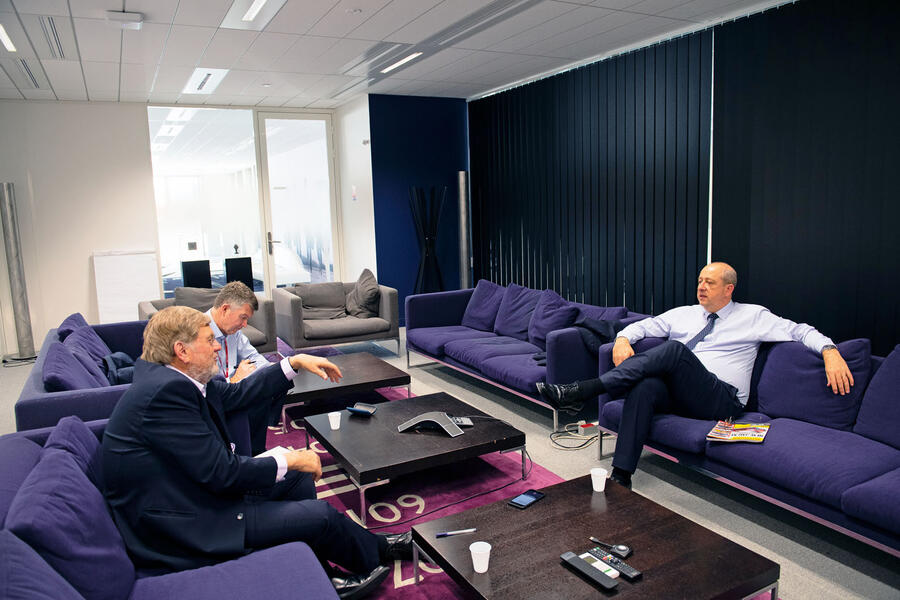Egged on by my probing, Imparato talks first about his childhood in southern France as part of an Alfa-loving, motorbike-mad family (“I am more or less Italian. It’s a long story”) and how the focus of his car love changed completely after an encounter with a black Peugeot 205 GTi just as he was lining up his first proper job after university and national service. Listening to Imparato talk is like riding a roller coaster: he skates over unimportant details, ignores grammar and delivers concentrated fragments of meaning faster than you’d have thought possible. Every sentence arrives as if there’s something even more important just waiting to be verbalised.
The Peugeot CEO’s brief history is that he was schooled in Sète, graduated in business in Grenoble, spent time in the army and had his black 205 encounter in 1990, just as he was sending out CVs to prospective employers, including PSA, which offered him a job. “It was simple,” he says. “I had to be in the car industry.”
Imparato was soon on the fast track that large companies reserve for promising recruits. Starting at Peugeot, he joined Citroën in various South American roles, returned to Peugeot’s quality department and progressed through other jobs across the group, spent time with Citroën in China and then took over its Italian operations from 2008 to 2010. By 2013, he was running PSA’s global retail business, a seriously big job. “I’m not a star,” he insists, “just a guy who loves business and has tried to learn as fast as possible. I’ve discovered it’s important to do many jobs. You must learn to speak to designers and engineers to explain the needs of customers.”

For Imparato, his commitment to Peugeot is more than just a job. It all goes back, he explains, to 26 September 1810, when Peugeot founded its business. “When a company has lived 208 years, it has seen many revolutions. Sure, mistakes have been made, but there has always been a recovery. We made mistakes before 2013 but we have come back in the past five years. I think it is possible to respect our products again.” Imparato says his management philosophy is simple: “For a start,” he says, “when I’m deciding where to put my money, I put design first. Gilles Vidal [design director] must be safeguarded.
“Then, I make sure to stay consistent with other principles developed over the past 10 years. One is excellence: we must catch every single fault in our cars and do something about it. I think we are on track with that but it is a long road. Second, we provide an intuitive driving experience – great road handling and our unique i-Cockpit that makes cars special and easy to use. Third, we simplify how people buy their cars in a way we introduced last year. Now people can first choose the Peugeot they want, then choose their powertrain. It wasn’t always so simple. We were missing customers who might have come to us.”